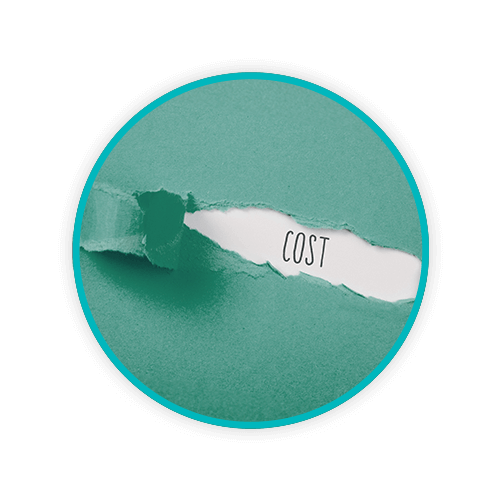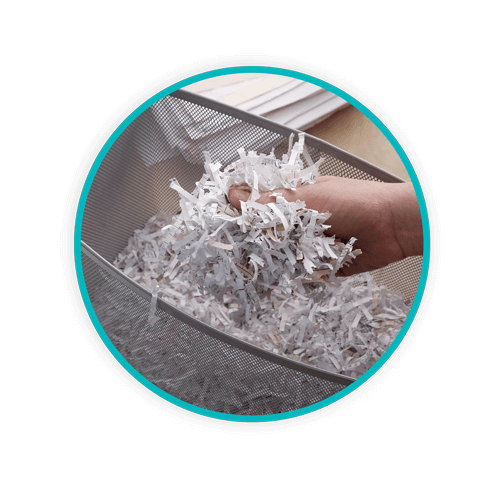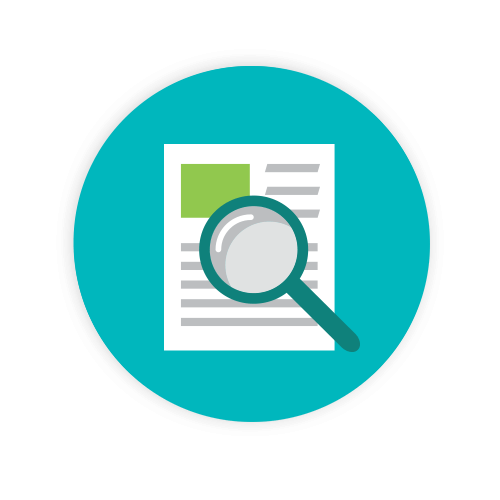What Is Confidential Waste? – 10 Examples

Join us as we peek behind the curtain of the sensitive nature of confidential waste to reveal exactly what it is alongside some examples – all without a breach of confidence…
From healthcare to retail and government agencies, the proper management and disposal of confidential waste is crucial. Healthcare facilities in particular handle vast amounts of sensitive information, making it imperative to protect patient privacy, adhere to legal standards, and prevent data breaches.
In this blog, we define confidential waste, explore the risks of improper disposal, and provide some best practices for managing it effectively.
TOPICS WE WILL COVER:
1 / Defining Confidential Waste
2 / Importance of Proper Disposal
4 / Best Practices for Disposing Confidential Waste
5 / Employee Education and Training
6 / Secure Destruction Methods
7 / Sharpsmart’s Confidential Waste Disposal Services
9 / Your Partner In Confidential Waste Management
Defining Confidential Waste
Confidential waste encompasses any documents or information containing sensitive or personal data, whether in physical or digital format. These materials must be securely disposed of to protect privacy and comply with legal obligations.
Examples of confidential waste include:
- Patient medical records
- Prescription information
- Test results
- Insurance details
- Legal documents
- Research data
- Financial records and bank details
- Intellectual property
- Employee records
- Customer records
Importance of Proper Disposal
The secure disposal of confidential waste is essential for several reasons. For example, it ensures that sensitive patient information is protected from unauthorised access, reinforcing information security.
What’s more, it guarantees compliance with data protection laws such as the General Data Protection Regulation (GDPR), which mandates stringent disposal practices for confidential information.
Lastly, it reflects a healthcare facility’s commitment to environmental responsibility by ensuring that waste is managed in an eco-friendly manner where possible. Failure to manage confidential waste appropriately can lead to severe ramifications, including unauthorised data access, legal penalties, and even reputational harm.
Risks of Improper Disposal
Now that you know what confidential waste is and the importance of proper disposal, let’s take a look at the risks of improper disposal:

Data Breaches
When confidential healthcare information is not disposed of correctly, it’s at risk of exposure to unauthorised individuals. This can result in identity theft, financial fraud, and other malicious activities. Safeguarding such data is crucial to maintaining patient trust and avoiding potential legal issues. Data breaches can have far-reaching consequences, affecting not only the individuals whose data is compromised but also the healthcare facility responsible for the breach.
Legal Consequences
Healthcare facilities are subject to strict regulations regarding data protection. For instance, the UK’s GDPR mandates secure disposal practices for sensitive information. Non-compliance with these laws can result in significant fines and legal repercussions. Healthcare organisations must ensure that their disposal methods meet regulatory standards to avoid these penalties and maintain legal compliance.
Reputation Damage
A data breach resulting from improper disposal of confidential waste can cause severe damage to a company’s reputation. Patients, partners, and stakeholders may lose confidence in the facility’s ability to protect sensitive information. This loss of trust can have long-lasting effects on patient relationships and the facility’s credibility, making it difficult for the organisation to recover.
Financial Impacts
The financial repercussions of a data breach can be substantial. You may face legal fees, regulatory fines, and the costs associated with resolving the breach. Additionally, facilities may be subject to litigation from affected parties, further increasing the financial burden. These costs can be debilitating, especially for smaller healthcare providers.
Best Practices for Disposing Confidential Waste
The risks of improper disposal highlight just how important it is to get right. Similar to other types of healthcare waste, confidential waste needs to be handled carefully and properly in compliance with regulations. But we’re not just here to point out what happens if you get it wrong, let’s look at how to get it right…
Identify and Classify Sensitive Materials
Begin by identifying all materials within your facility that contain sensitive data. Categorise these materials based on their level of confidentiality to effectively prioritise their disposal methods. This classification helps ensure that the most sensitive information is given the highest level of protection.
Implement Secure Storage Solutions
Adopt secure storage protocols for sensitive materials. Store sensitive documents and data in locked filing cabinets, safes, or secure digital servers. Access should be strictly controlled to authorised personnel only, and encryption should be used for digital files. These measures help prevent unauthorised access and ensure that confidential information is protected.
Regular Audits and Purging
Conduct routine audits to identify and remove outdated or unnecessary confidential materials. Create a retention schedule that dictates how long different types of data should be retained according to legal requirements and business needs. Regularly purging obsolete materials minimises the risk of unauthorised access and ensures that only necessary information is retained.
Employee Education and Training
Raising employee awareness about the importance of confidentiality and their responsibility in securing sensitive information is critical. Offer training on appropriate handling procedures for sensitive documentation, including how to identify, store, and dispose of confidential materials securely. Encouraging a culture of vigilance and accountability regarding data protection helps ensure that all employees are committed to maintaining confidentiality.
Secure Destruction Methods
Integrate secure methods to thoroughly destroy confidential waste. For physical documents, high-security shredders that reduce papers to unreadable sizes should be employed. Digital media should be disposed of using secure erasure methods or physical destruction techniques. These methods ensure that confidential information is completely destroyed and cannot be recovered.
 Sharpsmart’s Confidential Waste Disposal Services
Sharpsmart’s Confidential Waste Disposal Services
Sharpsmart specialises in managing various types of confidential waste to ensure secure and compliant disposal. Our confidential waste services include:
- Medical Records Destruction: We handle the secure destruction of medical records, ensuring patient confidentiality is maintained.
- Confidential Paper Shredding: Our paper shredding services guarantee that sensitive paper documents are destroyed beyond recognition.
- Hard Drives and Digital Media Destruction: We offer secure destruction of hard drives and other digital media to prevent data breaches and unauthorised access.
Why Choose Us?
Sharpsmart is trusted across the UK for our confidential waste removal services. Here’s why:
Committed to Compliance and Reliability
With almost two decades of industry experience, Sharpsmart complies with all relevant data protection laws, including GDPR. Our waste experts guarantee that your confidential waste is managed according to the highest standards.

Secure Collection Processes
Our GPS-monitored fleet securely collects confidential waste from your premises while offering flexible collection schedules tailored to your organisational requirements. This ensures that your waste is handled efficiently and securely from start to finish.
Advanced Destruction Technology
Once collected, all sensitive materials are taken to our secure facilities monitored 24/7 where they are eliminated using state-of-the-art technology that assures total compliance and safety. We also provide certificates of destruction for verification, giving you peace of mind that your confidential waste has been securely disposed of.
Environmental Sustainability Focus
While ensuring that many confidential items are disposed of securely, we also emphasise sustainability by incorporating recycling into our processes where feasible. This commitment to environmental responsibility ensures that even in secure waste disposal, we contribute to environmental conservation.
Your Partner in Confidential Waste Management
The management and disposal of confidential waste are essential for protecting sensitive information and adhering to legal requirements. By implementing strong practices and collaborating with Sharpsmart, you can ensure that your confidential waste is handled securely and responsibly.
Contact us to get started with our confidential waste disposal services.
Let's Talk!
Your time is valuable, and we don’t want to play hard to get. You can either phone us directly on the details listed on our contact page, or feel free to fill out this short form and one of our team members will get back to you as quickly as possible.

